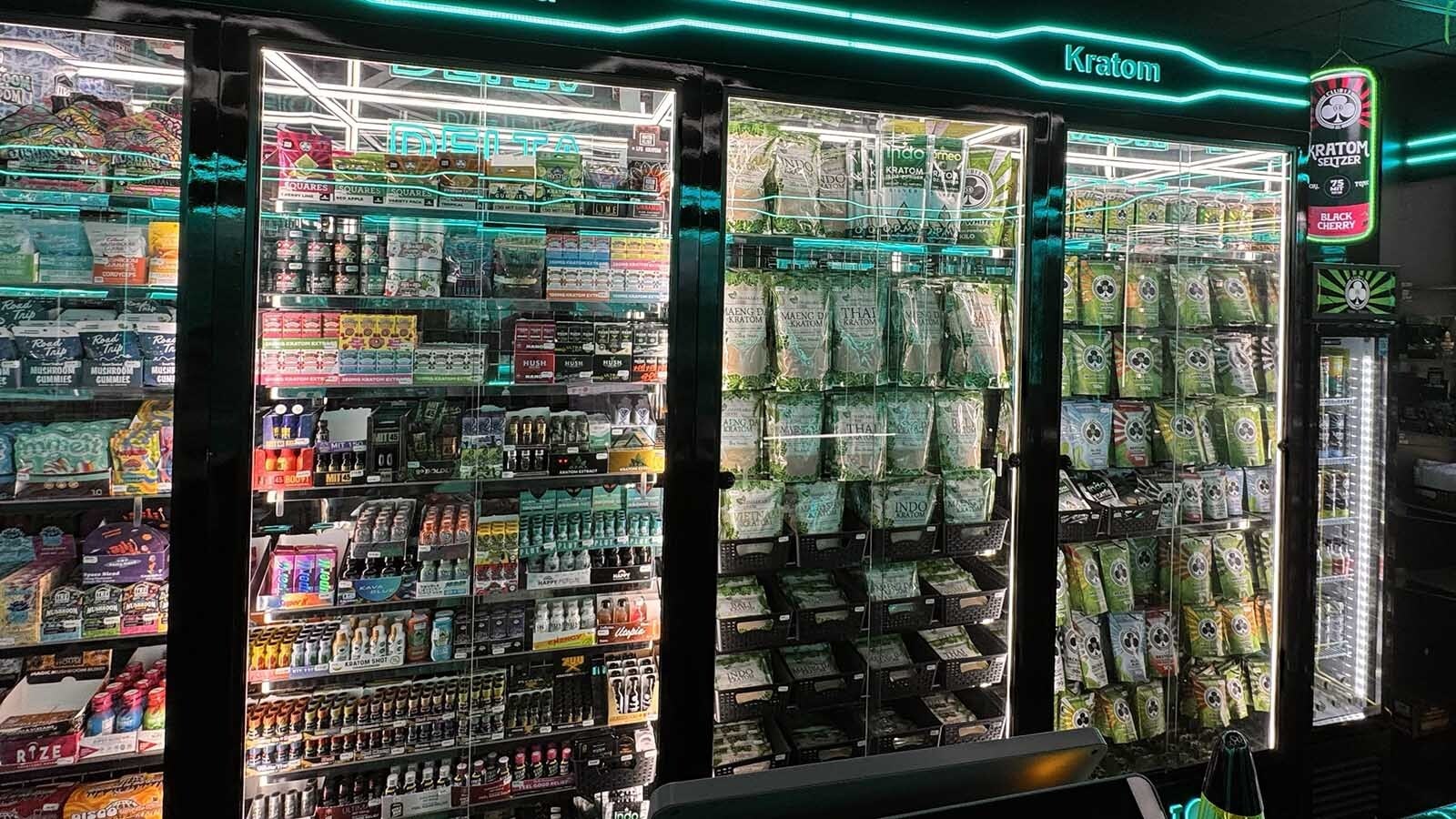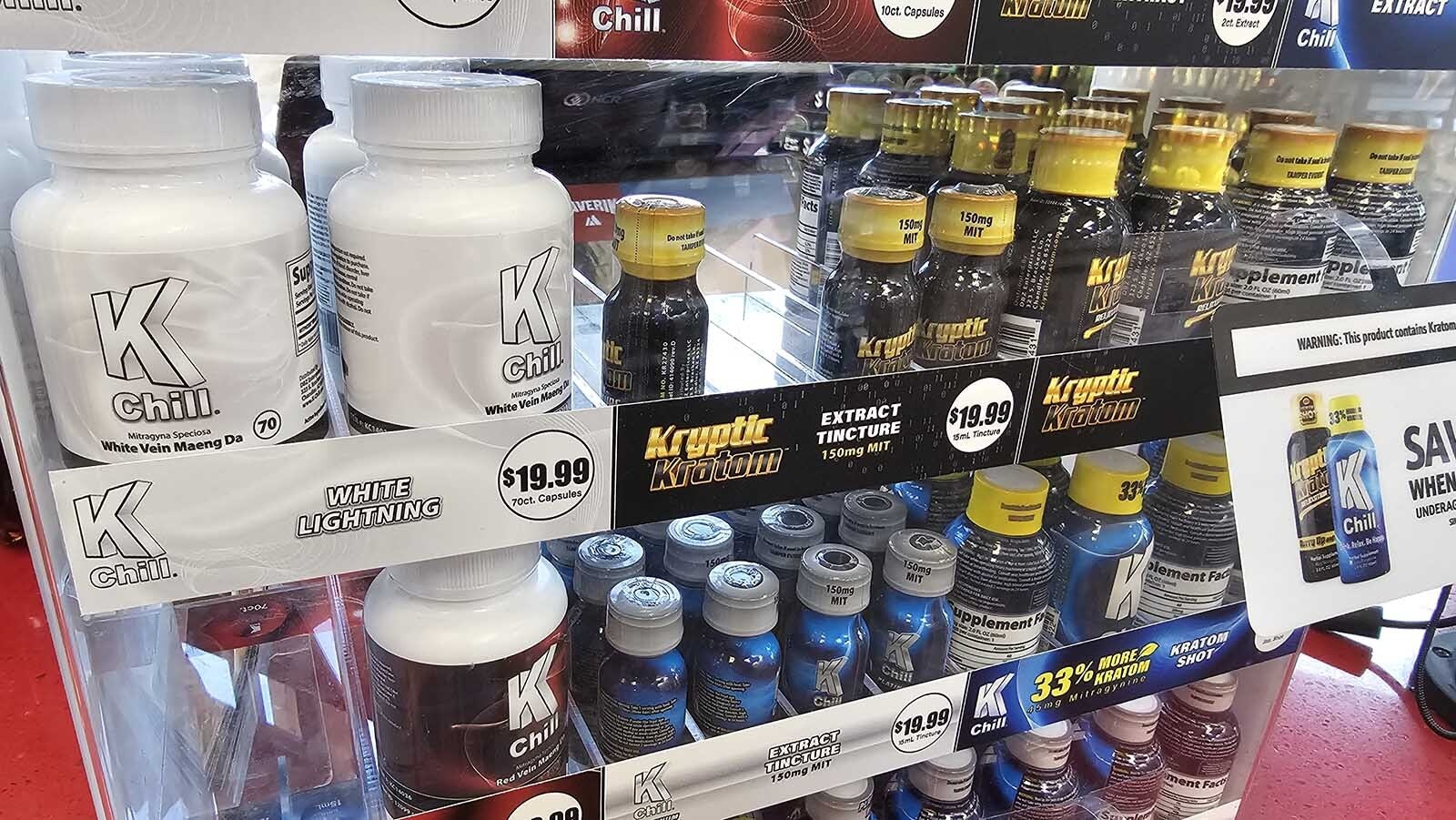Some people call it gas station heroin, others street-legal morphine.
Regardless of such nicknames, kratom has sparked growing concerns nationwide about the safety of the over-the-counter supplement.
There so far haven’t been widespread reports of problems with kratom in the Cowboy State, bur that doesn’t mean it isn’t a concern for law enforcement agencies.
Evan Storch is a lieutenant with the Laramie County Sheriff’s Office who trains law enforcement officers across the state to recognize impaired driving. He said he has seen the supplement cause problems in other states.
“I worked in Arizona prior to coming to Wyoming,” he told Cowboy State Daily. “And I have had a couple of DUIs that were kratom-related.”
With its widespread availability in Wyoming, Storch is already including training to recognize the symptoms of kratom-impaired driving in the classes he conducts across the state.
One difficulty officers face in recognizing Kratom-impaired driving is the wide range of symptoms this supplement can cause.
“You have people, if they’ve used it in like a low dose, they could get more of a stimulant type of effect, kind of like drinking a cup of coffee in the morning,” Storch said. “However, in a high dosage, it tends to have more of an opioid effect. So, it’s going to start to mimic what you’re seeing with fentanyl, heroin and that type of stuff.”
But it’s not just the dose that creates variability. The effects also can vary widely from one individual to the next, Storch added.
“If they’re having more of like stimulant effects from it, you might see someone who has a sped-up perception of time and distance,” he said. “They may be traveling at a speed that’s greater than the posted limit on the roadway.”
The higher doses that create a more narcotic-like effect, meanwhile, cause an equal but opposite effect — slower, delayed reactions.
“They’re going to take a longer distance to stop or potentially identify a hazard in the roadway,” Storch said. “Whether that’s a tire that came off a car, or a child running out in the street.”
Neither situation is ideal, Storch said. And it suggests that caution is warranted when it comes to consuming this over-the-counter supplement prior to driving or operating heavy equipment.

What Is Kratom?
Kratom leaves come from a tropical evergreen tree that is native to Southeast Asia. Sold as a supplement, kratom has become increasingly popular in the United States as a home remedy for things like pain, coughing, diarrhea, anxiety and depression, and opioid withdrawal symptoms.
Many shops now carry it, from convenience stores and herbal supplement aisles to vape shops and
It’s become widely available in a variety of shops, ranging from convenience stores and herbal supplement aisles to vape shops and gas stations.
An estimated 1.7 million Americans aged 12 and up used the supplement in 2021, according to figures from the Substance Abuse and Mental Health Services Administration.
U.S. Secretary of Health and Human Services Robert F. Kennedy Jr. announced last week that he plans to restrict derivatives of the kratom plant, citing concerns about manufacturers who have isolated and amplified a particular compound in kratom, making the product far more potent than it would normally be.
That substance is called 7-hydroxymitragynine, or 7-OH. It acts by binding to the same opioid receptors in the brain as fentanyl and other narcotics, and its symptoms, including withdrawal, are similar.
In nature, 7-OH is less than 2% of alkaloid substances found in Kratom leaves, according to data from the Food and Drug Administration in its report on what it says is an emerging opioid threat.
The Wyoming Health Department told Cowboy State Daily that statewide data shows so far low, but nonetheless “concerning,” kratom use across various age groups, resulting in 19 fatalities since 2020 and 52 poison control calls since 2019.
“Kratom is not an approved treatment for any health condition, and individuals should consult health care professionals about risks and alternative treatment options,” the statement says. “Kratom products lack safety and effectiveness data and may contain contaminants and unverified dosages.”
Anyone experiencing adverse effects from Kratom should contact the Poison Help Line at 1-800-222-1222, or 911 if there is a medical emergency.
7-OH Not Legal As A Dietary Supplement
Kennedy also said he does not recognize any 7-OH approved drugs, and the substance is not lawful when added to dietary supplements or conventional foods such as tablets, gummies, drink mixes and shots.
He has further recommended that 7-OH be listed as a Schedule 1 drug by the Drug Enforcement Administration. If they decide to follow that recommendation, there will be a process that includes a public comment period before any scheduling action is finalized.
The move, which does not target natural kratom leaf products, was applauded by Mac Haddow with the American Kratom Association, an advocacy group that supports kratom,
“Secretary Kennedy and Commissioner (Marty) Mackary have shown exceptional leadership in confronting one of the most urgent public health threats related to mislabeled, manipulated psychoactive substances,” Haddow said. “These 7-OH products are not kratom.
“They are chemically altered substances that carry potent opioid-like effects and pose an imminent threat to consumers. This move sends a clear and longoverdue message: the safety of the American public comes first.”

Wyoming’s Schedule 1 Approach Creates Loopholes
The proliferation of far more concentrated products is something that should concern Wyoming, Rep. Daniel Singh, R-Cheyenne told Cowboy State Daily.
“Kratom is a natural plant that many Americans use responsibly to manage pain or other health conditions,” he said. “Like any substance, kratom can be misused — but for the vast majority of users it serves as a natural alternative to more dangerous or addictive medication.”
It’s when the 7-OH is artificially concentrated that it presents a public health problem, Singh added, and he’s glad to see federal agencies getting involved in that.
“I’m grateful that Health and Human Services Secretary Robert F. Kennedy Jr. is taking action,” he said. “His leadership in pushing for 7-OH to be classified as a Schedule 1 Substance is exactly what’s needed.
“He has made it clear that this is not about banning kratom, and I support that distinction,” Singh continued. “The issue isn’t the plant, it’s the synthetic knockoff that’s being abused due to regulatory gaps.”
While Singh views criminalizing unadulterated kratom as an over-reach, he does think now might be the time to review how Wyoming manages its list of scheduled, controlled substances.
“The Wyoming Controlled Substances Act of 1971 is modeled after federal drug policy,” he said. “But the state maintains its own separate list of scheduled substances. Many of these are highly technical and difficult to interpret, even for lawmakers.”
One thing Wyoming could look at doing, Singh said, is a bill that would direct its agencies to immediately review and prepare recommendations on any discrepancies between Wyoming and the federal list of scheduled drugs so that lawmakers can act on them at the next available legislative session.
“I don’t necessarily think the federal government is going to get it right,” he said. “And if the federal government decided to ban Red Bull, for example, I don’t think Wyoming should automatically ban it as well.”
While that would still leave a gap in time where a federally illegal substance is legal in Wyoming, Singh said it would ensure the gap is a small one of limited duration.
Renée Jean can be reached at renee@cowboystatedaily.com.





